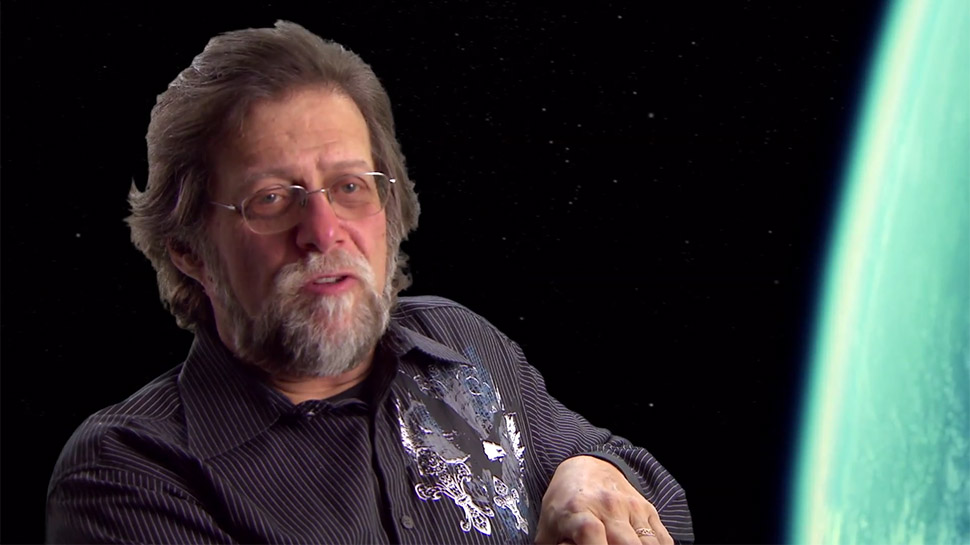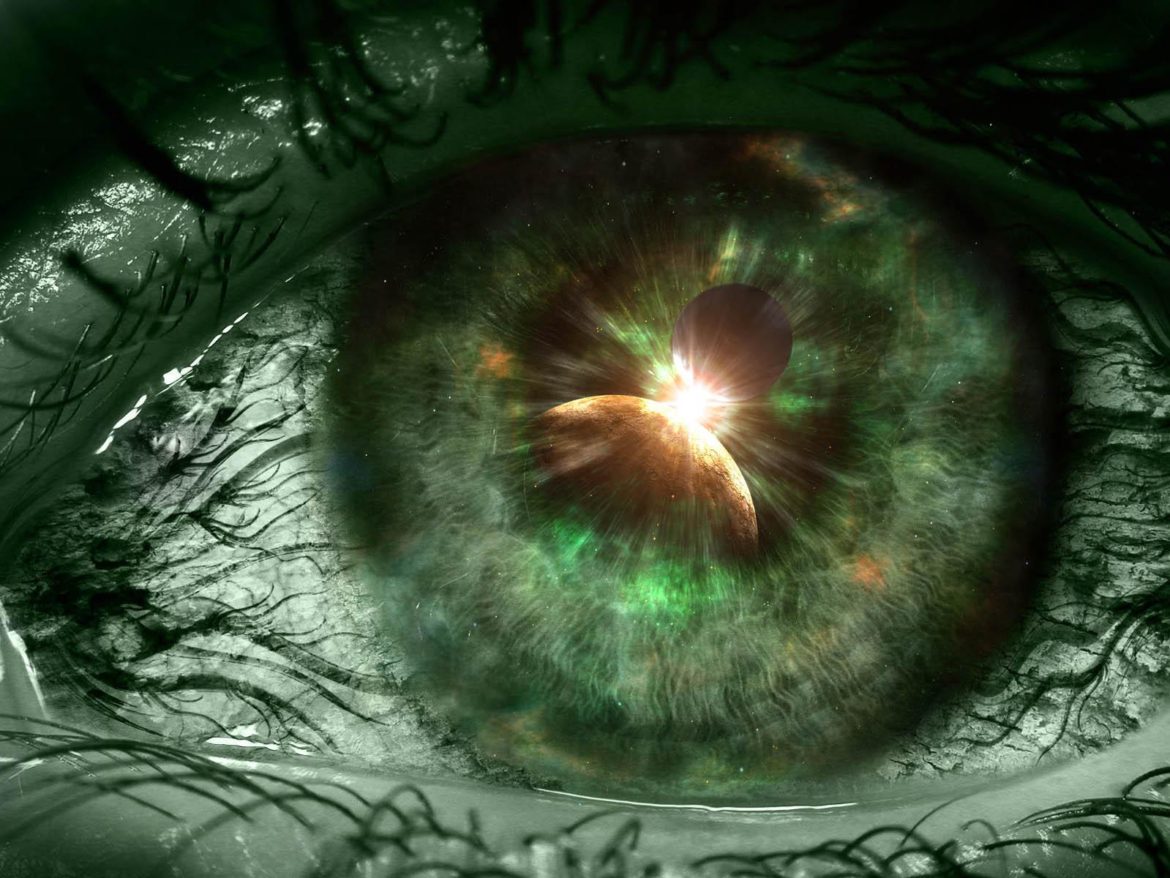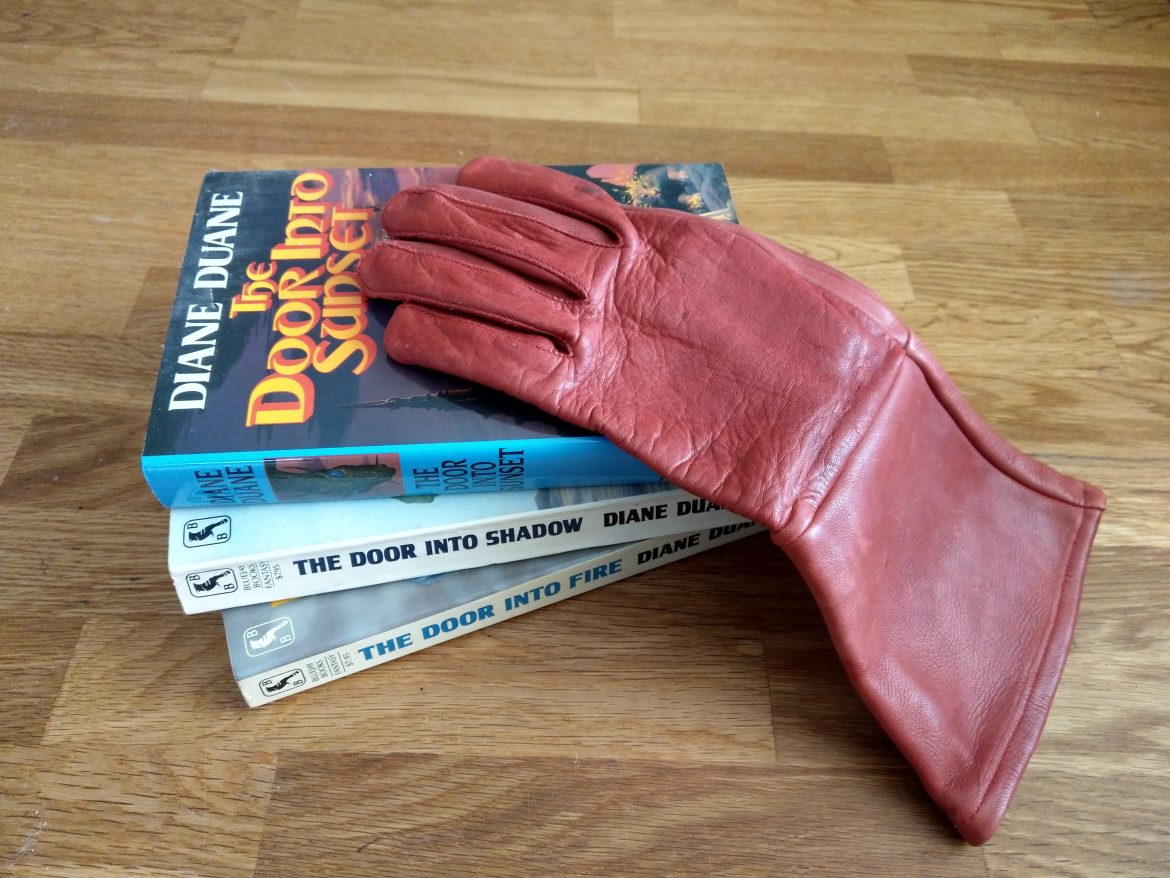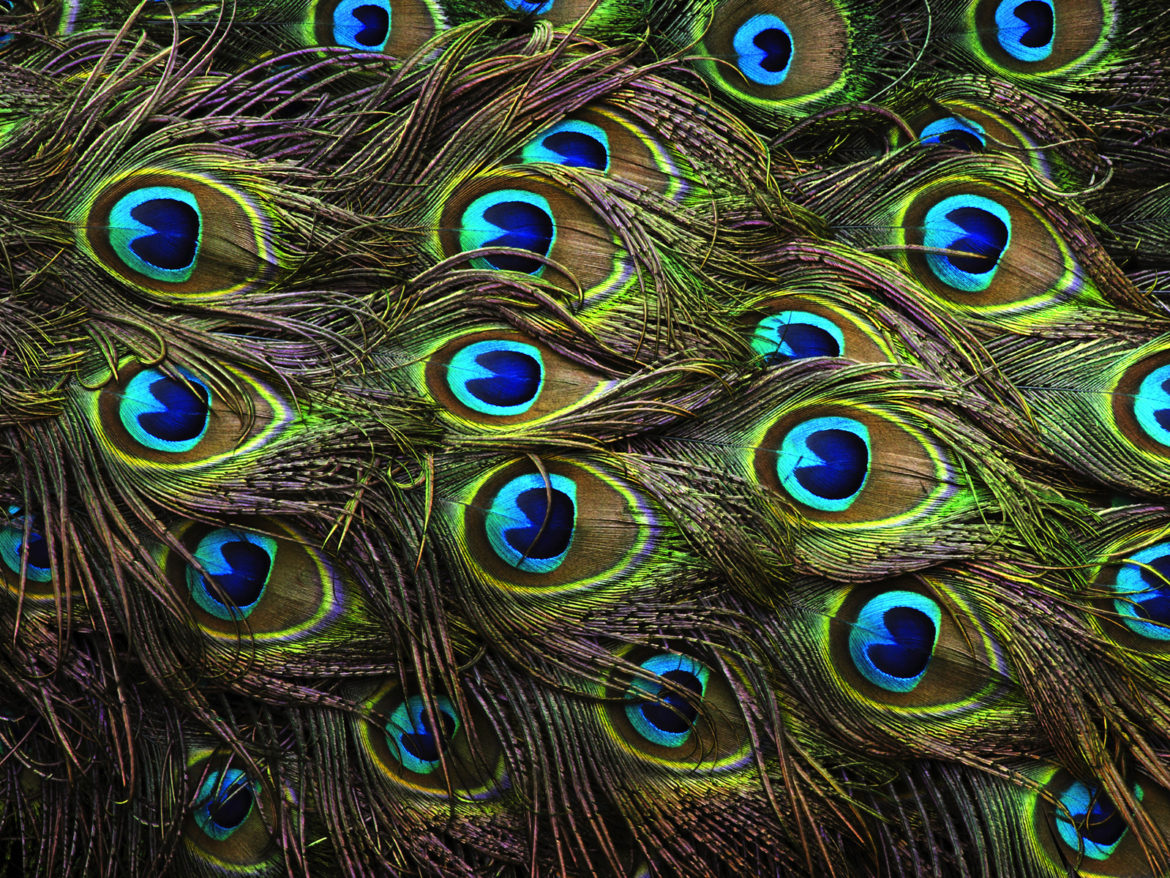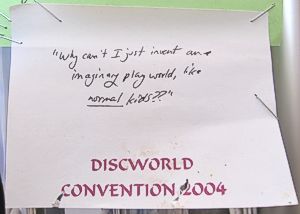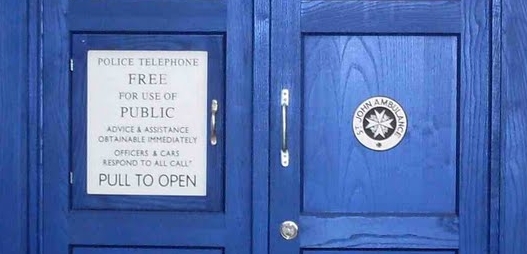So it’s Sunday afternoon and I’m going through my Twitter feed and suddenly I see one of those Tweets you really, really don’t want to ever see… and it’s already too late to unsee it.
Len Wein has passed away. Len co-created Swamp Thing, Wolverine, Colossus, Nightcrawler. His was a gigantic contribution to comics. pic.twitter.com/6d9dXfVBNw
— Patch Zircher (@PatrickZircher) September 10, 2017
Everything goes away abruptly, replaced by a behind-the-eyes vision. A Manhattan street (Broadway, in fact). Crates full of fruit and veg stacked steeply out onto the sidewalk, glass and metal doors opening inward, and what seem like hundreds of small handwritten signs, everything slicked over on this side by yellow sodium-vapor streetlight glare. And next to me a tall dark shadow, like a cutout piece of night with curly hair, bends down and murmurs in my ear, “Now we will dare to enter the dread portal of a place whence only the luckiest few, be they man or woman, mortal or immortal, have escaped alive!!” Cue portentous music in the background: Dun dun dunnnnnnn.
Camera pans up to the sign: Fairway Market.
And now that I really want to cry, it’s too late, because the happily grinning SOB has me laughing already. He’d been mocking me for being such a hidebound East-Sider that I’d never food-shopped on the West Side of Manhattan. “Come on,” says one of the great writer/editors of the comics business as he pushes one of the doors open, “we’ll grab a snack and look for typos, it drives ‘em crazy.”
…It was the mid-1980s, and I was once again getting used to the pace of life on the East Coast, but from a different angle—not as a psychiatric nurse working at New York Hospital this time, but as a Philly-located freelance SF and fantasy writer, stretching her wings and trying to work out what she could do next and what (in the long term) she was good for. Early experience with SF fandom in the mid- and late 70s had laid the groundwork for the lifestyle change: six years in LA spent writing and learning, and many more fannish and pro-ish contacts and friendships made after that first sale, had broadened and solidified it. Once settled in Philly a lot of old connections were reforged and many new ones made… and one of the very best of these was when, I have to assume by happy accident, I got swept into the casual ambit of the artists and writers who frequented DC Comics’ old digs at 666 5th Avenue.
I was often in the city to see my agent or my book editors or friends from my nursing days, and downstairs in the 666 building there was a steakhouse-y restaurant where people got together once a week or so after work for drinks or whatever. It wasn’t just DC people: Marvel folks were there too (as there seemed to be a fair amount of “crossing the line” going on between what were then the two great houses). It might have been at one of these get-togethers that I first met Len, or at a convention in or near New York or Philly, but who cares? Even in those star-studded crowds, Len stood out. The sound of his laughter would catch your attention first. The things he said and did in between would keep it. And you would quickly learn that you were in the presence of a curly-haired force of nature: intensely visually and verbally creative, fearless, utterly committed… And goofy.
I wonder sometimes if the effortless ease and accessibility of his humor confused people—both pros and fans—who were more used to interacting with his written work, which was always serious, down deep (though only rarely somber, which is another deal entirely). In any case it took very little time after meeting Len to recognize the goofery as a kind of crema floating at the top of his personal espresso, a self-renewing byproduct of the richer darker strata below. Len was completely unafraid to be funny at the drop of a hat because he had gravity (or gravitas) enough to counterbalance the humor, and in exactly the needed amount, whenever he chose to call on it. More, he knew the difference between pathos and bathos, and exactly how deep to let the vorpal blade pierce. When he needed to draw blood, dramatically speaking, the accuracy was well-nigh surgical.
Len’s was the kind of emotional wisdom you normally look to see in people much older, and paid for (as wisdom usually is) in pain. You wouldn’t have known Len long without discovering that his physical constitution, possibly jealous of all the attention he lavished on the life of the visual mind, had been pulling a wide variety of nasty tricks on him from a young age. It was the last of these that took him away from us the other day. Len was one of those people the doctors predict can’t possibly live beyond their teens, but it was not his style to just roll over and let that happen. He made Entropy wait its damn turn for as long as humanly possible.
Fortunately he had a goodish run ahead of him, and many lives to change. When first meeting him all that while ago, it took no time to find out that Len saw himself as a resource, the sort of person who’d tell you the true deal about how things worked in the world surrounding them. The work itself, the art and craft of being creative, especially visually creative, and getting what you created out there, was his great passion. He was as eager to learn as he was to teach, and his generosity at the teaching end was surpassed only by his delight at finding out how to do something he hadn’t figured out for himself before. A lot of what I know about comics writing, I know from many long talks with Len—so that it was a pleasure to share with him as much as I could of what I’d gleaned about the art of animation writing in time for him to bring that data to bear on the Transformers episode “Webworld”, our only shared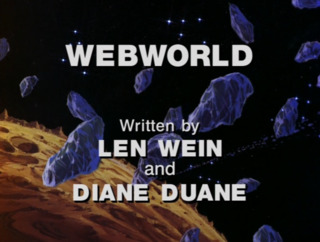 credit. It was a pleasure to push him over that cliff and into what would prove a long and successful additional career stream as a TV writer.
credit. It was a pleasure to push him over that cliff and into what would prove a long and successful additional career stream as a TV writer.
The friendship that grew up between us was simply a source of great joy to me whenever our schedules allowed us to run into each other: usually at conventions on one side of the Atlantic or the other, but sometimes more frequent and more casual visits when we happened to be living on the same coast for a while. The man I was lucky enough to get to know over time was a thorough-going professional, hard-working and indeed merciless to himself when he was in full flow. A creative goal—image, story, series, whatever—would be identified, and then Len would simply start heading in that direction until he got there. There was no question of “if”. The “when” was a given. Add the power that his patience, persistence and determination could layer underneath his visual and verbal brilliance, and you got somebody whose talents sometimes seemed positively superhuman.
Yet at the same time there was nothing harsh about the way he employed this expertise. There was always a great gentleness perceptible in Len, with (as so often seems to be the case in the good guys) a truly steely toughness underneath. When Len got angry—and injustice in particular made him angry—there was no hiding it, and nothing soft about it. Loyalty mattered to him. Courage mattered to him. Kindness mattered to him a lot. I remembered thinking more than once, If this guy’s as good as he is at writing demigods and superheroes, maybe there’s a reason. What is it they keep telling us—that terrible advice, “Write what you know?” Maybe in this case it’s not so terrible. Len and his chosen material were a good fit for each other.
He was also a curious writer, and a thoughtful one, never willing to take things at face value, or leave them there. I think this ability to take his reader in unexpected directions was the source of another part of his appeal. Len never met an idea that (after a few moments of courteous examination) he wouldn’t pry up by one edge, like a manhole cover, and take a good long look underneath to see what else might be there that was interesting. I particularly recall one of those long walks around the upper West Side during which we spent a while chatting about a story called “Henchman” (Blue Beetle #8). Here the attention isn’t so much on the battle of superhero versus supervillain, but on one of the villain’s hires, who’s wrestling with the problems all of us wrestle with—home life, money, family problems, the job you had to take even though you weren’t wild about it because that’s what the family’s breadwinner has to do. This was not territory to which most writers would pay attention, but Len was never “most writers.” “The guy’s got a mortgage,” I can hear Len saying in tones of genuine concern as we pause somewhere on Broadway, waiting for a light. “He’s got a wife and kids, he’s gotta hang onto his job to make it all work, you know?”
I did know, because with him I shared a fondness for something else Len really knew how to exploit: that sweet (or not-so-sweet) spot where the fantastic element of a story crunches up against the real-life part, like two ends of a broken bone, always painful to a greater or lesser extent, never letting you forget there’s a price being paid. That pain Len knew in both the physical and emotional modes, but he made it serve his turn. Empathy and compassion were core themes in all his best work, and the stubborn determination and willingness to push through life’s challenges became natural parts of his storytelling arsenal. No surprise that some of Len’s best stories and arcs featured characters playing out the hand Life had dealt them, hanging on in seemingly intolerable situations, just doing the best they can.
Now, alas, the storyteller is no longer among us, having left us only the stories to speak his mind and his heart: the written and penciled and inked ones, and also (for us lucky people whose lives he touched) the personal ones. But then everybody who had the privilege of knowing him for even a few minutes has a Len Story. I’m lucky enough to have a fair number; even Peter has a batch secondary to various Worldcons and other get-togethers after we were married.
His favorite: at Worldcon in Atlanta, where Peter and I got engaged, he and I and Len and Marv Wolfman got together for dinner one night. As the restaurant was a steakhouse, out came Our Waiter with a tray containing variously sized pieces of meat and a plastic lobster. Then Our Waiter, in the midst of explaining the steaks, happened to put his hand on the plastic lobster, which moved. We all jumped, and Len jumped the highest. When asked what we wanted for dinner, we all instantly chose meat, or more accurately any damn kind of meat and not lobster thank you, and the tray was taken away. I think we made it as far as dessert before Len gravely rose to his feet, reached for his hat and put it over his heart. “Larry the Lobster is walking the last mile,” Len said, more or less inevitably doing one of the things he did best: dramatically spotlighting the underdog in its moment of greatest crisis. We looked where he did—seeing the tray, denuded of everything but Larry, being taken to the kitchen—and rose to stand with him, heads bowed and causing all the people around us to go WUT. Especially when Peter toon-lobster-squeaked under his breath, “My mum told me I’d have a good career in catering, but I don’t think this is it…!” and Len sort of faceplanted, snorting, in the direction of his pie.
For my own part I’m thinking now of something a little further along the flight of Time’s arrow than the Fairway. Maybe…fifteen years ago? So long? But yeah: people slide around, sometimes to other continents, and time and space draw out inconveniently wide in between. Age slides in and we start complaining to one another (when we meet at this convention or that one, when we finish hugging and settle in…) about creaking joints and graying hair and the other symptoms of creeping mortality. I remember Len complaining goodnaturedly how a procedure he’d had, a liquid-ultrasound lithotripsy* performed in a ”magic Jacuzzi”, had somehow failed to give him a superpower. “Hate to say this, but I feel a little bit cheated,” Len said. He laughed, and so did I.
Hard on the heels of the memory of his laughter, though, comes a sense that the world is distinctly gloomier and sadder today because Len’s not in it any more; and the cheated feeling is mine. Probably a lot of other people’s, too. It’ll take a while for the truth to sink in for us all, the unhappy realization that all the Len we have now, the stuff presently locked down in paper or electrons, is all the Len there’s ever going to be. The source of all that wonderful, wholehearted storytelling is gone. If you’re in pain because of this, I’m standing with you now. But there’s this to think about too: a significant portion of what the comics field is today, it is because Len was here. His creative DNA will remain a vital part of comics for decades to come, which is about as much immortality of the kind humans can get that’s capable of standing up under independent scrutiny.
Meanwhile, others’ belief systems may carry them in differing directions on this count. But right now as the best antidote to my own sorrows I prefer to consider the possibility of a renewed Len looking around him, somewhere, somewhen soonish, to find himself occupying a body (or what passes for one) in which things aren’t going to keep on breaking any more—a physical envelope that’s an absolutely perfect fit for whatever purpose he next chooses. It would be satisfying to think about an outcome in which an old friend is newly free to go off and do, in some larger sphere of influence, what he was always best at: create.
A pretty fantasy, you say? I’ll just shrug at you. I’m a fantasist. If I want to work overtime, surely that’s my business.
But at the very least I can go hunt down Blue Beetle #8 and read “Henchman” again.
Hear the NPR obit for Len, with a soundbyte of him talking about his work
Below: see Len on the PBS: Superheroes documentary
*Medical terminology for “smashing a stone up”; a preferred treatment for unusually large kidney stones.

